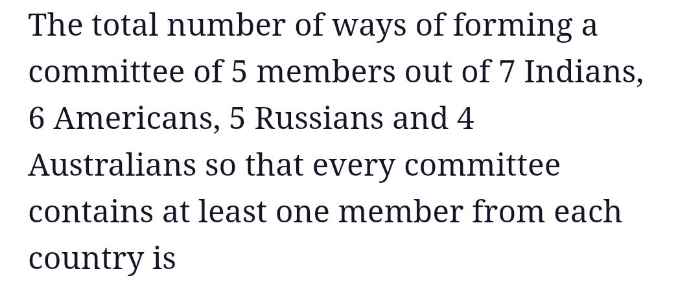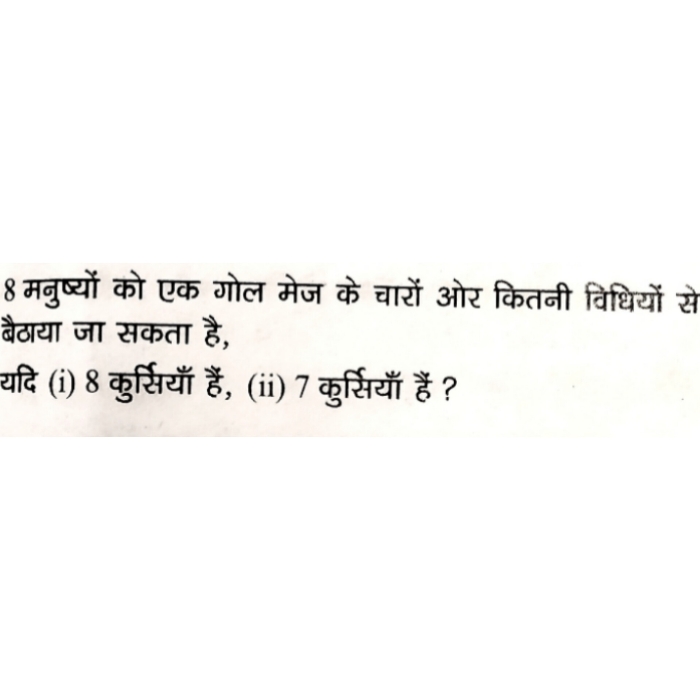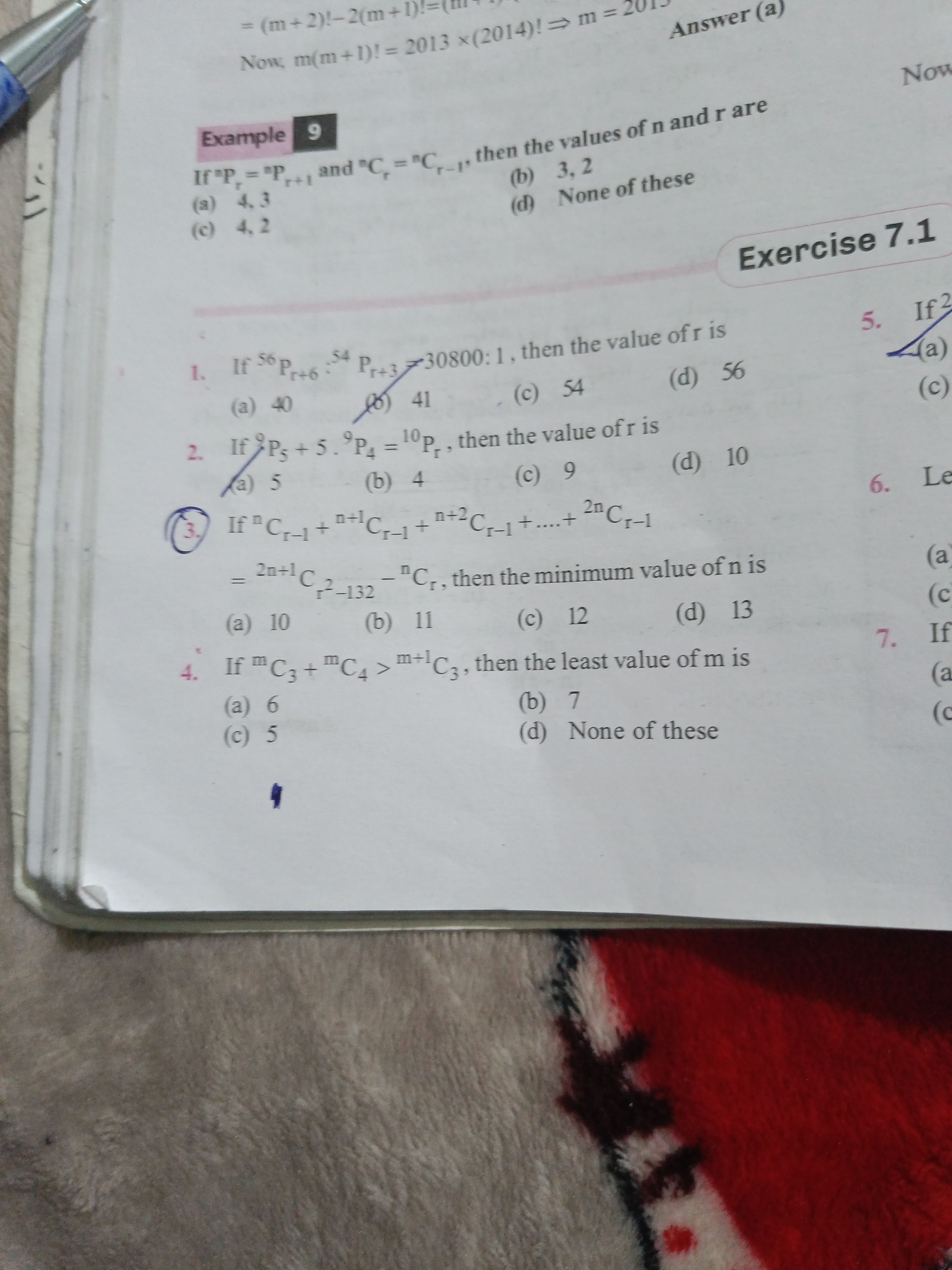Permutations and Combinations
Permutations And Combinations PDF Notes, Important Questions and Synopsis
SYNOPSIS
- Fundamental Principle of Counting
- Permutation is the number of ways to arrange things.
Eg: Password is 2045
(order matters) - It is denoted by P(n, r) and given by
P(n, r) = , where 0 ≤ r ≤ n
, where 0 ≤ r ≤ n
n → number of things to choose from
r → number of things we choose
! → factorial
- Combination is the number of ways to choose things.Eg: A cake contains chocolates, biscuits, oranges and cookies.
(Order does not matter) - It is denoted by C(n, r) and given by
C(n, r) = , where 0 ≤ r ≤
, where 0 ≤ r ≤
n → number of things to choose from
r → number of things we choose
! → factorial
- Permutation is the number of ways to arrange things.
- Permutation
If n is the number of distinct things and r things are chosen at a time.
i. Permutation of objects when all are not distinct:
Permutation = ,
,  → Number of things among ‘n’ which are alike of rth type.
→ Number of things among ‘n’ which are alike of rth type.
ii. Circular permutation
1. When clockwise and anti-clockwise arrangements are different:
Number of permutations: (n - 1)!
2. When clockwise and anti-clockwise arrangements are the same:
Number of permutations:
iii. Permutation under restrictions
Selecting and arranging r distinct objects from n
- When ‘k’ particular things are always to be included.
Number of permutations:
- When a particular thing is always to be included (k = 1).
Number of permutations:
- When ‘k’ particular things are never included.
Number of permutations:
- When a particular thing is never included.
Number of permutations:
- When ‘l’ particular things always come together.
Number of permutations: (n - l + 1)! ⨯ l! - When ‘l’ particular things never come together.
Number of permutations: n! - (n - l + 1)! ⨯ l!
|
i. Permutations with repetition Number of permutations: nPr= nr (Repetition, order matters)
Out of  ← Taking 2 at a time ← Taking 2 at a time |
ii. Permutations without repetition
 (No repetition, order matters) Out of  ← Taking 2 at a time ← Taking 2 at a time |
3.Combination
|
|
|
ii Combinations under restriction
|
|
| i. Combination with repetition Formula:  (Repetition, order does not matter) (Repetition, order does not matter)Out of  ← Taking 2 at a time ← Taking 2 at a time |
ii. Combination without repetition Formula:  (No repetition, order does not matter) Out of  ←Taking 2 at a time ←Taking 2 at a time |
Download complete content for FREE 
JEE Main - Maths
Asked by mohangopi254 | 24 May, 2024 11:38: AM
JEE Main - Maths
Asked by ashwinskrishna2006 | 11 May, 2024 12:37: PM
JEE Main - Maths
Asked by satwik0115 | 16 Mar, 2024 07:53: AM
JEE Main - Maths
Asked by shivanshij5 | 07 Feb, 2024 11:16: AM
JEE Main - Maths
Asked by pantsanjana10 | 28 Jan, 2024 09:10: AM
JEE Main - Maths
Asked by rekha.rmd7 | 12 Dec, 2023 12:04: AM
JEE Main - Maths
Asked by harshpunia109 | 26 Jun, 2023 07:21: PM
JEE Main - Maths
Asked by harshpunia109 | 25 Jun, 2023 06:36: PM
Related Chapters
- Sets, Relations and Functions
- Complex Numbers and Quadratic Equations
- Matrices and Determinants
- Mathematical Induction
- Binomial Theorem and its Simple Applications
- Sequences and Series
- Limit, Continuity and Differentiability
- Integral Calculus
- Differential Equations
- Co-ordinate Geometry
- Three Dimensional Geometry
- Vector Algebra
- Statistics and Probability
- Trigonometry
- Mathematical Reasoning













